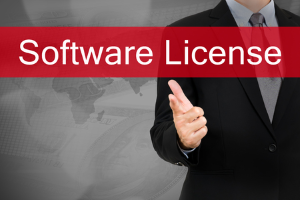 What Is A Software Resale License?
What Is A Software Resale License?
A software resale license agreement authorizes the purchaser (licensee) to sell copies of the software to third parties under certain terms and conditions. It’s also referred to as a “resell license.”
In a hurry? Download this article here to read later.
What Kinds Of Resale Licenses Are Available?
If you’re unsure which type of resale software license agreement you need, here’s some information that may help. Although the terms can vary quite a bit based on the unique needs of licensors and licensees, these are the three most common types of app resale licenses:
- Resale License
- Master Resale License
- Private Label Resale License
1. Resale License
A software resale license usually authorizes the resale licensee to sell software copies to buyers who receive an end user license agreement (EULA) to use the software. These EULA purchasers cannot in turn legally sell copies of the application to others.
2. Master Resale License
A master resale license typically permits the master licensee to sell resale licenses (see above) to purchasers. However, the master licensee will not have the right to sell master resale rights to others.
3. Private Label Resale License
A private label resale licensee can either have resale or master resale rights depending upon the language used in the private label license. What’s unique about private label licensing is that the licensee can rebrand/rename the software when selling it to others. However, the licensee likely will not have the right to resell private label rights to others.
What Are The Biggest Risks Of Software Resale Licensing?
First, many licensors do not know what rights they have to re-sell. As a practical matter, you can’t sell what you don’t have in the first place. For example, if a resale licensee tries to sell private label master resale rights, the scope of the license exceeds what the licensee actually owns and can legitimately sell to others. Whether you’re the seller or buy or resale rights, it’s essential that you know what’s being sold and whether it legally exists as intellectual property rights that can be sold by the vendor.
Second, do-it-yourself entrepreneurs try to create their own software agreements without the assistance of an experienced app attorney. They may even “borrow” another software’s license and misuse it for their own application. This type of shortcut leads to contradictory licenses, angry buyers, and lawsuits.
Related Article: Software Development Agreement – 10 Legal Issues To Cover
Third, many software apps are developed with code that is licensed from third parties. The code licensed may be restricted in such a way as to prevent sale of private label or master resale rights to anyone.
How Do You Avoid These Resale Licensing Dangers?
To reduce the risk of making these types of costly mistakes when selling or buying a software resale license, it makes sense to retain an experienced software attorney to handle the legal aspects. To speak with Software Lawyer Mike Young about your app resale licensing needs, set up a telephone consultation with him.

